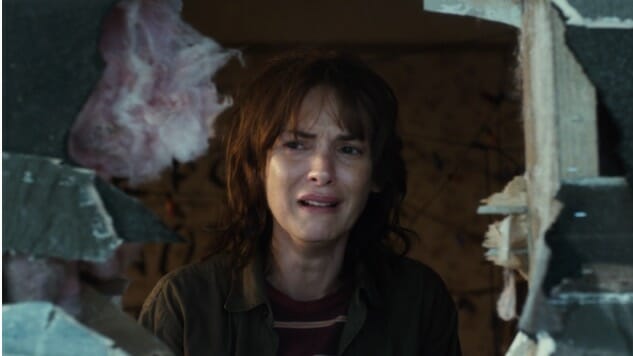How The Female Characters of Stranger Things Reveal Its Bigger Problems

In the last month, Netflix’s Stranger Things, has become the locus of nearly unanimous praise, sparking a resurgent conversation about current art’s ongoing fascination with remixing ‘80s culture as a vision of cultural idealism. Some have taken it to task for its level of homage, while others have obsessively cataloged the range of influences in every frame and gesture.
But while Stranger Things may have an over-reliance on outside inspiration, the bigger problem is the show’s inability to present female characters who aren’t defined by their relation to the plot. Plot-based storytelling isn’t inherently an issue, but like another early Netflix show, House of Cards, Stranger Things hides the inadequacies of its writing with fastidious production design, strong performances, steady pacing and just enough interactions with the characters to get a vague sense of their relationships, but without granting them interiority.
Nowhere is that sense of hollowness more apparent than in Stranger Things’ treatment of its female characters—a group of women whose actions are entirely dictated by the needs of the plot (Justice for Barb!). Winona Ryder has been at the center of much of the show’s acclaim for her fiercely emotional role as Joyce Byers, the grief-stricken mother who’s desperately searching for evidence that her missing son, Will (Noah Schnapp), is still alive. But while Ryder brings an exhausted intensity to the role, her characterization is a prime demonstration of the show’s disinterest in the characters individual journeys.
Joyce’s character is an easy trope—a familiar and lazy archetype in a long history of cinematic and television mothers whose only response to tragedy can be violent denial, and a descent into behavior that makes her an other in the community. She’s the standard “crackpot,” a character who’s at first pitied, and subsequently dismissed as unstable.That’s bad enough, but this designation carries a secondary purpose—it allows Ryder’s character to exist completely separately from the town.
She’s been written into a place of total amnesty from any possible narrative consequences, and also any possible growth. Boarded up in her house for nearly the entirety of the season, she’s defined almost completely by her role as a mother, first in her consumption with her lost son, and in the second half of the season as a maternal figure to Eleven. Of course, her being a mother isn’t the problem, but so much of her screentime is about her reacting to her own grief and the ways that her son’s absence (and presence) shapes her life, rather than her development as her own character.
And in a season that places her in nearly every episode, it’s notable that there are only one or two moments when her character isn’t in a narrow emotional spectrum consisting of crying and yelling. There’s the flashback scene in the first episode where she buys tickets for Poltergeist, and a scene late in the season when she comforts Eleven before she goes into the deprivation tank. Other than these two (very welcome) moments, so much of Joyce’s role is reduced to set-up. She’s the character who stands on the fringes with the knowledge that everyone needs, but won’t believe if it comes from her. And other than those scenes that drive forward the plot—communicating with Will through the lights, being attacked by the Demogorgon—her main purpose is little more than to trigger paranoia in the heads of other characters who can actually enact change, like Jim Hopper (David Harbour) and her son, Jonathan Byers (Charlie Heaton).
-

-

-

-

-

-

-

-

-

-

-

-

-

-

-

-

-

-

-

-

-

-

-

-

-

-

-

-

-

-

-

-

-

-

-

-

-

-

-

-








































